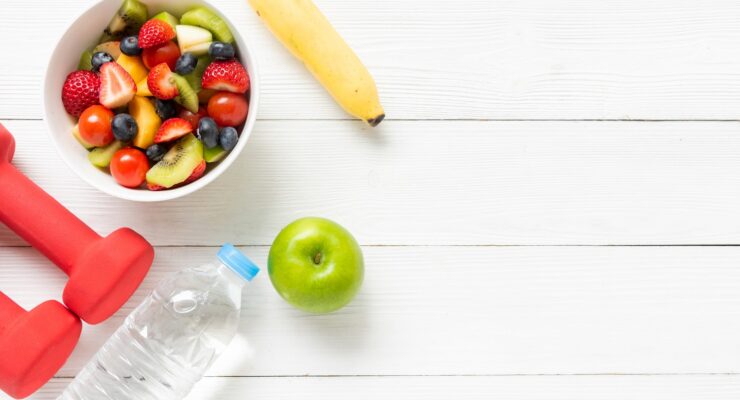The Menopause-Weight Gain Connection
Article posted in: Lifestyle
Hot flashes, fatigue, insomnia… As if women don’t have enough symptoms to deal with during the onset of menopause, there’s also the dreaded weight gain many experience. The “middle-age spread,” as it’s been (not-so-affectionately) coined, occurs not only because of hormonal changes taking place in the body (specifically, a decline in estrogen), but also because of increased stress levels.
As anxiety, stress and insomnia begin to bear their weight, it also becomes more difficult to make healthy lifestyle choices, which can lead to even more weight gain. It’s truly a vicious cycle. But it is one that you can stop in its tracks.
While you may feel out of control over many of your menopausal symptoms, weight gain is one that you can tackle—it will just take commitment. The solution is very similar to what we tell anyone who wants to lose weight: Stay active and maintain a healthy diet.
Stay Active
Staying active may seem like a no-brainer, but understanding the reasons why it’s so important to stay active might encourage you to follow through.
Because we naturally lose muscle mass as we age, our metabolism takes a dive. That’s because less muscle mass registers with the body as not needing to work so hard to burn calories. That’s why it’s so important to maintain muscle mass with some strength training—something that is too often skipped.
Try to incorporate some weight training activity into at least two of your workout days. It can be as simple as doing some lifting repetition with a gallon of milk. In addition, aerobic activity will help you burn more calories and, in turn, maintain a healthy weight. The American College of Sports Medicine suggests 30 minutes of moderate cardio five times a week or 20 minutes of intense cardio three times a week for adequate general health and weight maintenance.
Watch What You Eat
As we age, we need fewer calories—but the challenge is to drop calories without dropping nutrition. In other words, don’t drop the calories you get from healthy foods—seek out the foods in your diet that are providing empty calories and ditch those.
With age, it becomes more important than ever to choose more fruits, vegetables and whole grains and to get rid of the junk. According to the Mayo Clinic, the majority of women need about 200 fewer calories a day in their 50s than they did in their 30s and 40s.
As you aim to remove those excess calories, take a serious look at what you eat in a day. Even a small change, such as eliminating a soda habit, could easily take care of the unnecessary calories you’re consuming (Learn how to cut back on soda right here).
According to the Academy of Nutrition and Dietetics, menopausal women should also watch their sodium intake and skip the alcoholic drinks (or at least limit themselves to just one per day). The empty calories in alcohol are a common culprit of weight gain.
If you can find small changes to make in your everyday diet, the task of eliminating calories and eating healthier won’t seem nearly as daunting. And the good news is those small changes could have a big impact over time when it comes to preventing unwanted weight gain with age.
Get the food and tools you need for a lifetime of health, wellness and weight loss. You need a plan that understands your unique needs during and after menopause. Created for women by women, Complete 55 by Nutrisystem is specifically designed for women 55 and up. Learn more and get started here! >













